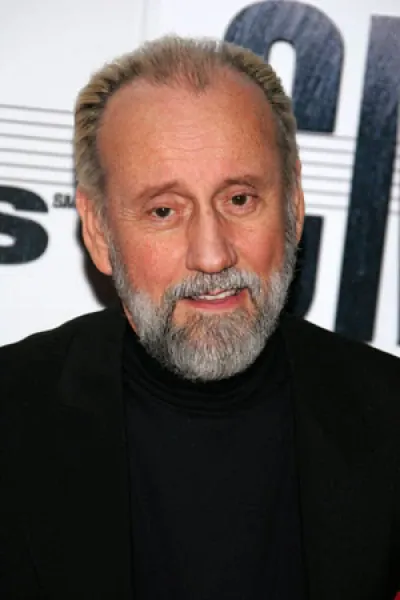
Ray Stevens
Top Ray Stevens albums
Top Ray Stevens lyrics
1,837 Seconds Of Humor (1962) *
Ray StevensRay Stevens biography
Harold Ray Ragsdale (born January 24, 1939),[1] known professionally as Ray Stevens, is an American country[2] and pop singer-songwriter and comedian,[3][4] known for his Grammy-winning recordings "Everything Is Beautiful" and "Misty", as well as comedic hits such as "Gitarzan" and "The Streak". He has worked as a producer, music arranger, songwriter, television host, and solo artist; been inducted into the Nashville Songwriters Hall of Fame, the Georgia Music Hall of Fame, and the Christian Music Hall of Fame; and received Gold Albums for his music sales. Early life[edit] Stevens was born in Clarkdale, Georgia.[5] While attending high school, Stevens formed his first band, a rhythm and blues group named The Barons. Following his graduation, Stevens enrolled in Georgia State College as a music major.[6] Career[edit] Early career[edit] At 16, Stevens signed to Capitol Records' Prep Records division in 1957,[6] and produced the singles "Silver Bracelet" and a cover of "Rang Tang Ding Dong", which met with a positive review from Billboard.[7] The latter was originally recorded by doo-wop group The Cellos in 1957.[8] In 1958, Bill Lowery created the National Recording Corporation (NRC), and hired Stevens to play numerous instruments, arrange music, and perform background vocals for its band. Stevens signed with Mercury Records in 1961.[9] With Mercury, he had several hits including "Harry the Hairy Ape," "Funny Man," the original recording of "Santa Claus Is Watching You," "Jeremiah Peabody's Polyunsaturated Quick-Dissolving, Fast-Acting Pleasant-Tasting Green and Purple Pills," and "Ahab the Arab." "Ahab the Arab" reached no. 5 on the Hot 100 in 1962. In 1966 Stevens signed with Monument Records and started to release serious material such as "Mr. Businessman" in 1968, a Top 30 pop hit; "Have a Little Talk With Myself" and the original version of "Sunday Morning Coming Down" in 1969, which became Stevens's first two singles to reach the country music charts. O.C. Smith covered the Stevens-penned "Isn't It Lonely Together", and Sammy Davis, Jr. covered "Have a Little Talk With Myself." Stevens continued to release comedic songs, and in 1969 he had a Top 10 pop hit with "Gitarzan." Stevens also became a regular on The Andy Williams Show during the 1969–1970 season, and he hosted his own show, The Ray Stevens Show, in 1970. In Australia, Ross D. Wylie reached the top 20 with his cover of Stevens' Funny Man. Stevens' collection of Hot 100 hits is evenly divided between serious and comedy. As an A&R man, producer, writer, and arranger, Stevens a**isted many artists at Mercury Records and Monument Records, 1961 through early 1970, including Ronnie Dove, Brenda Lee, Brook Benton, Patti Page, Joe Dowell, Dusty Springfield, and Dolly Parton. "My True Confession," a Top-10 on the R&B chart in 1963 for Brook Benton, was written by Stevens and Margie Singleton. Stevens was the arranger for the Doyle Holly recording of "My Heart Cries For You," which had been recorded previously by Stevens during the late 1950s on the NRC label. 1970s[edit] In the 1970s, Stevens became a producer and studio musician in Nashville. He recorded songs for Barnaby Records and Warner Brothers during 1970–79. Stevens' biggest hit in the U.S. was his gospel-inflected single "Everything Is Beautiful" (1970). The single won a Grammy Award, was the theme song for his summer 1970 TV show, hit number one on both the pop and Adult-Contemporary charts, and marked his first time in the Top 40 on the country charts, peaking at number 39. It sold over one million copies, and was awarded a gold disc.[10] His other 1970 singles were "America, Communicate With Me" and "Sunset Strip," both of which reached the Top 20 on the Adult-Contemporary lists. His novelty song "Bridget the Midget (The Queen of The Blues)" made number two on the UK chart in 1971 and number 50 in the U.S. His 1971 gospel/country single, Albert E. Brumley's "Turn Your Radio On", reached the country Top 20. Two more songs in 1971 were also minor hits, "A Mama and a Papa" and "All My Trials," but both made the Top 10 Adult-Contemporary lists. Stevens frequently toured Canada and went to the UK. A rock-inflected gospel arrangement of "Love Lifted Me" became a hit in Thailand in 1972, reaching the Top Five. In 1973, Stevens had a top 40 country hit with the title track of his album Nashville, and performed on a variety of prime-time TV programs. In 1974, Stevens recorded perhaps his most famous hit, "The Streak," which poked fun at the early-1970s fad of running nude in public, known as "streaking." It became number one in both the UK and the US and No. 3 on the country chart. In 1975, he released the Grammy-winning "Misty," which became his biggest country hit (#3 US country, #14 US pop chart, #2 UK Singles Chart). He also entered the country Top 40 with a doo-wop version of "Indian Love Call," "Everybody Needs a Rainbow," and a ballad version of "Young Love" in early 1976. Stevens parted from Barnaby Records and joined Warner Brothers in 1976, where his debut single was a cover of "You Are So Beautiful" (country Top 20), then "Honky Tonk Waltz" (country Top 30). He then released a novelty single under the pseudonym "Henhouse Five Plus Too": a version of Glenn Miller's "In The Mood" in the style of a clucking chicken; a Top 40 hit in the US and UK in 1977. In 1978 he had a hit with "Be Your Own Best Friend" on the country charts, and in 1979 he had his last Hot 100 hit (to date) with the novelty "I Need Your Help, Barry Manilow," which he released from the album The Feeling's Not Right Again. In the US, Stevens' singles would reach only the country chart nationally thereafter.
